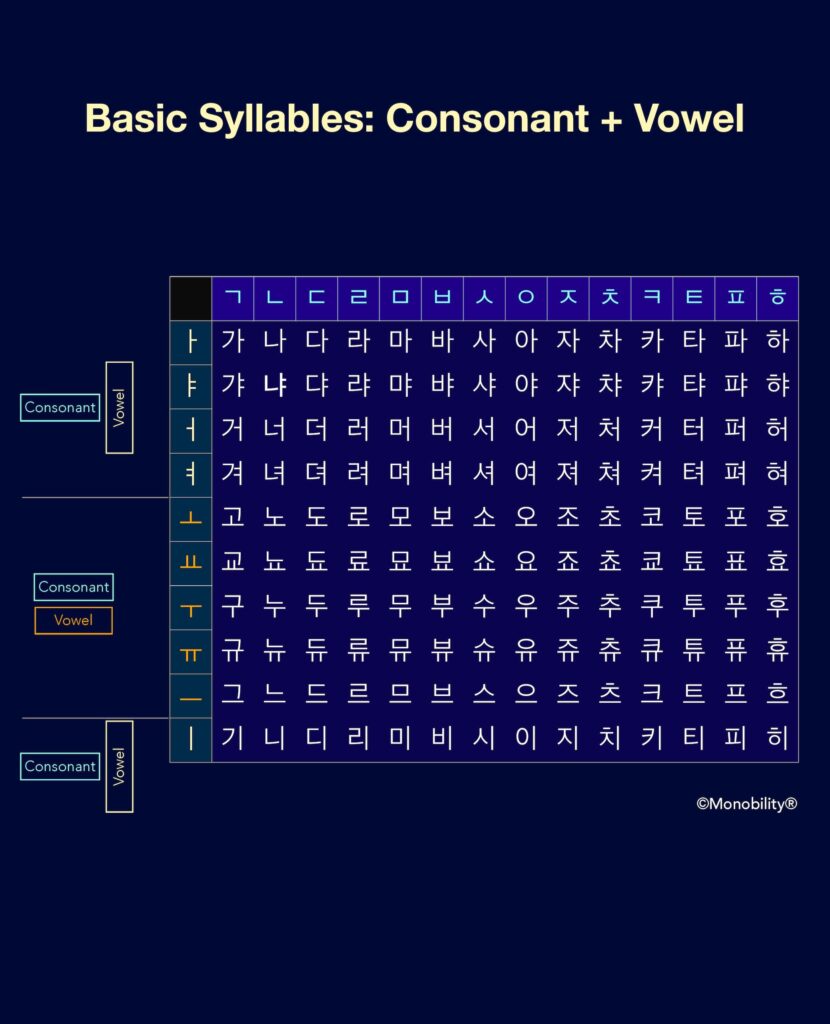Here is the first important exercise for beginners – Basic Korean syllables. By now, you learned by heart 14 basic consonants and 10 basic vowels as Priority #1 and #2. (If not, please go back to those posts and learn them first.) Now it’s time to combine them together and make some sounds! 14 x 10 = 140 syllables! Yes, it’s like a drill, but it’s fun, so I don’t have to be your drill sergeant! I only suggest that you listen to the video and read each and every syllable aloud until you familiarize your ear and your tongue with those typical Korean sounds. Without pronouncing them correctly, there is no speaking Korean. After all, languages are nothing but the sounds that human beings make systematically, aren’t they? ^^
A few notes:
- Please disregard the syllabic tone of the recordings. The computer-generated recordings seem to make a peculiar tone for a few syllables that are not used any more in modern Korean words, such as 댜, 뎌, 됴, etc. Again, Korean is not a tonal language, so please pronounce all syllables as “flat” sounds. No tones. Just make sure that consonant + vowel sounds are correct.
- You may have noticed that Korean “ㅅ” sounds much less strong than [s] at the beginning of words in English. That is correct, and it’s important to practice accordingly. Korean has a separate consonant “ㅆ” that corresponds to the strong [s] sound, which we will show in another lesson. Until then, please make sure you don’t say “싸랑해요!” when you should say “사랑해요!” ( = “I love you!” ) ^^
- You may also have noticed that [f] and [v] sounds are not anywhere in the chart. No [z], either, let alone [ʒ] ! Those beautiful labial and alveolar fricative consonants are my favorite sounds, but alas! They are just not there in the Korean language. It’s just the way it is. No Korean children learn to make those sounds in childhood (unless they learn foreign languages early on, of course.) Without a better way to denote those foreign sounds in 한글, ㅂ is used for both [b] and [v], and ㅍ for both [p] and [f], etc. So, many Koreans will pronounce some of your country names, e.g., Vietnam as [Betnam], or France as [Prance]. When they do, please don’t get annoyed! ^^ Koreans are doing their best, as you will understand by practicing the chart below.

Join Monobility® Group for much more:



